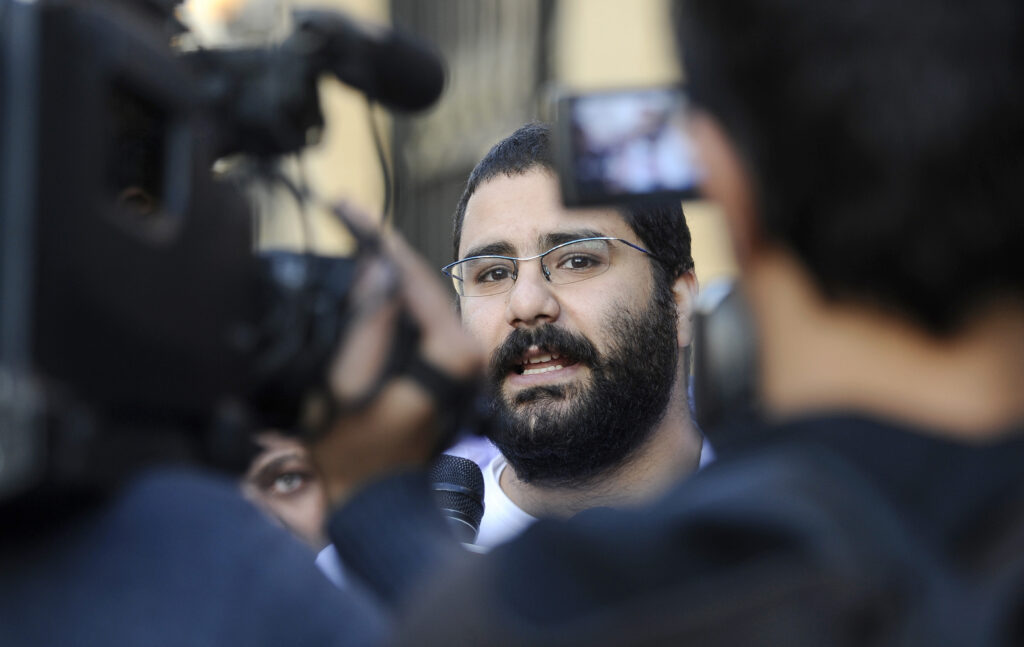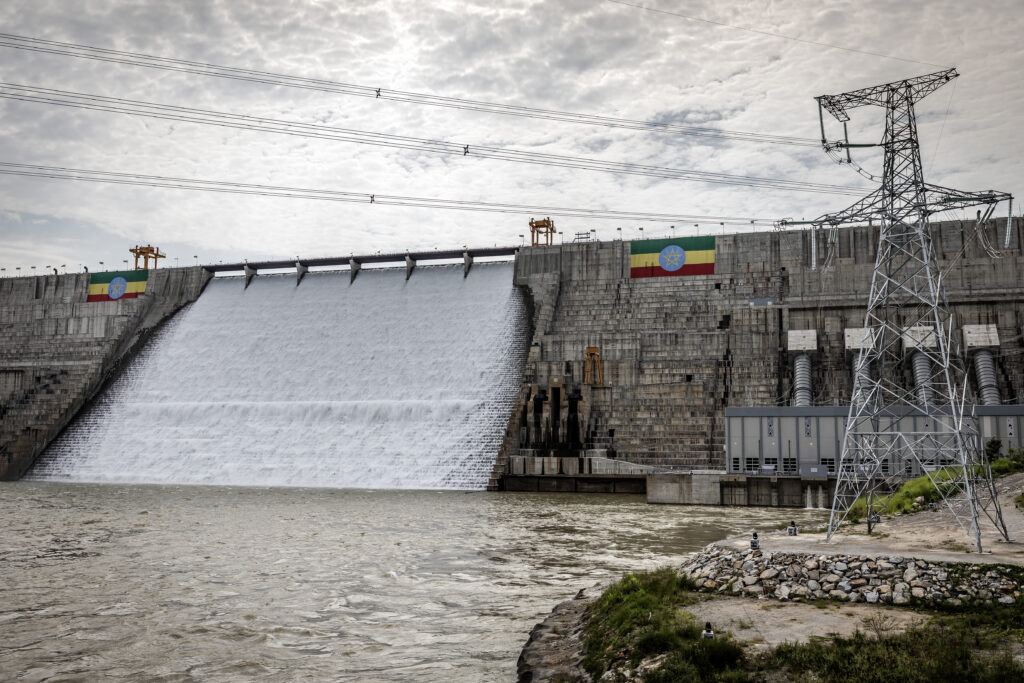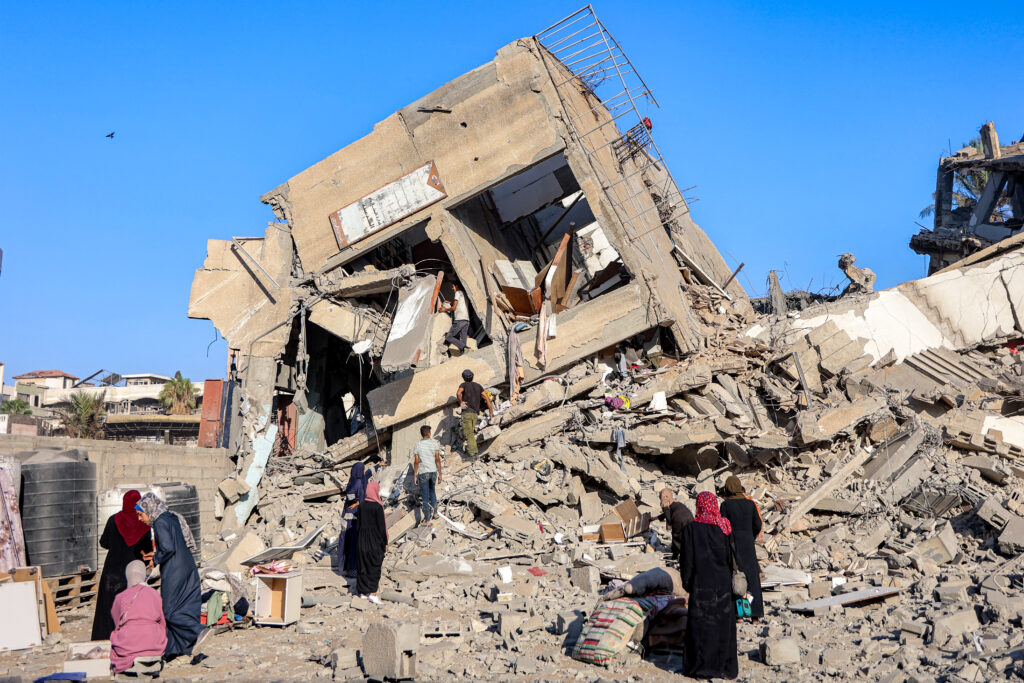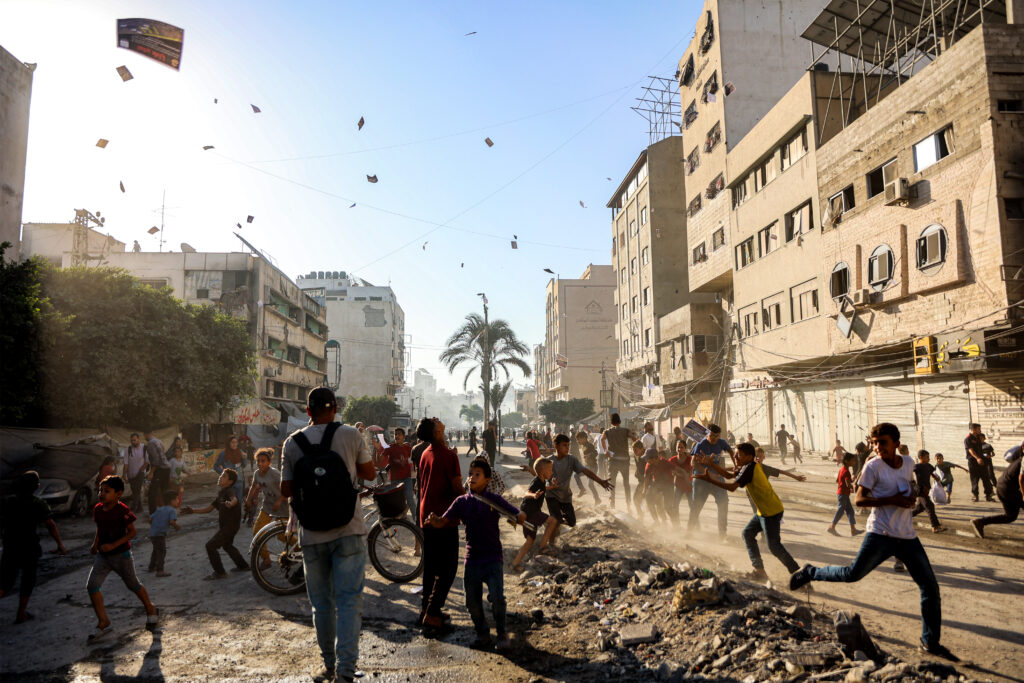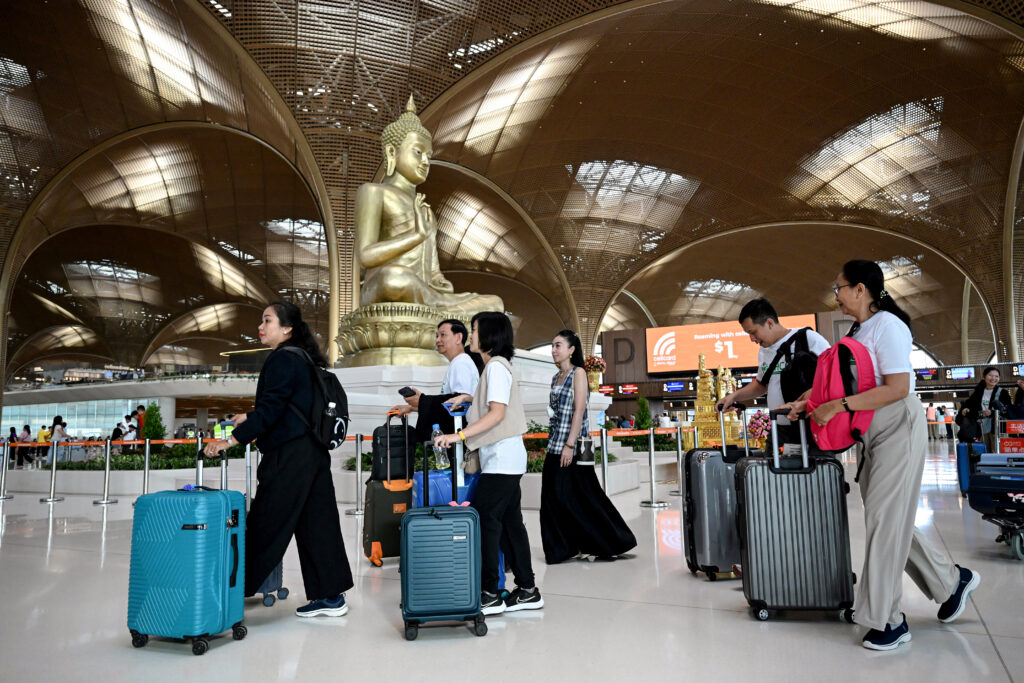AFP Asia Business
Egypt’s Sisi orders study of pardon for activist Alaa Abdel Fattah
Egyptian President Abdel Fattah al-Sisi ordered authorities on Tuesday to study a petition for a presidential pardon for prominent rights activist Alaa Abdel Fattah, the state-affiliated human rights council said.Sisi “directed the relevant authorities to study the petition” submitted by the National Human for Rights Council to pardon a number of individuals, including Abdel Fattah, a dual Egyptian-British activist who has been jailed for much of the past decade.The 43-year-old activist was a leading figure in Egypt’s 2011 uprising and was jailed under successive governments since.His mother, activist and academic Laila Soueif, recently ended a 10-month hunger strike demanding his release.Abdel Fattah himself has been on hunger strike since the start of September, following a partial strike that began in March in solidarity with his mother.The Egyptian presidency did not comment on the petition and the move does not guarantee Abdel Fattah’s release, as the pardon process can be lengthy and remains at the discretion of the president.The British government has consistently raised his case with Egyptian authorities, including during talks between Prime Minister Keir Starmer and Sisi.The council said in a statement that the petition came in response to appeals from the prisoners’ families “to grant them a new chance in life”.Following Abdel Fattah’s latest arrest in 2019, he was sentenced in December 2021 to five years in prison for “spreading false news” after sharing a Facebook post about alleged torture in Egyptian jails.Authorities told his family they had decided not to count his two years in pre-trial detention, which normally counts towards jail sentences in Egypt.In July, the criminal court ordered his removal from the country’s terrorism list, ruling that recent investigations showed no evidence linking him to the outlawed Muslim Brotherhood. The United Nations has called his detention arbitrary and urged his immediate release.While Egypt has recently issued presidential pardons for several political prisoners, Abdel Fattah has remained behind bars.
Ethiopia inaugurates Africa’s biggest dam
Ethiopia inaugurated the continent’s largest hydroelectric project on Tuesday, with Prime Minister Abiy Ahmed calling it a “great achievement for all black people” despite years of diplomatic rancour over the dam with downstream neighbour Egypt. For Ethiopia, the Grand Renaissance Dam (GERD), straddling a tributary of the River Nile, is a national project of historic scale and a rare unifying symbol in a country torn apart by ongoing internal conflicts.The latest figures from its Italian construction firm Webuild said the dam reached 170 metres (550 feet) high and stretched nearly two kilometres (1.2 miles) across the Blue Nile near the Sudanese border. The $4-billion megastructure is designed to hold 74 billion cubic metres of water and generate 5,150 megawatts of electricity — more than double Ethiopia’s current capacity, it said.That makes it the largest dam by power capacity in Africa, though still outside the top 10 globally. “GERD will be remembered as a great achievement not only for Ethiopia, but for all black people,” Abiy said at the opening ceremony, attended by regional leaders including Kenyan President William Ruto and Somalia’s President Hassan Sheikh Mohamud.”I invite all black people to visit the dam. It demonstrates that we, as black people, can achieve anything we plan,” said Abiy, who has made the project a cornerstone of his rule.But neighbouring Egypt, dependent on the Nile for 97 percent of its water, has long decried the project, with President Abdel Fattah al-Sisi calling it an “existential threat” and vowing to take all measures under international law to defend its water security. “For downstream countries, Ethiopia has accomplished GERD as a shining example for black people. It will not affect your development at all,” Abiy said at the ceremony.- ‘No longer a dream’ -The festivities began the night before with a dazzling display of lanterns, lasers and drones writing slogans like “geopolitical rise” and “a leap into the future”.Analysts argue the GERD, under construction since 2011, could transform Ethiopia’s economy, boosting industrial production, enabling a shift towards electric vehicles and supplying power-hungry neighbours through regional interconnectors that stretch as far as Tanzania. Some 45 percent of Ethiopia’s 130 million people lack electricity, according to World Bank data, and frequent blackouts in Addis Ababa force businesses and households to rely on generators.”It is no longer a dream but a fact,” Pietro Salini, CEO of Webuild, who built the dam, told AFP from the inauguration.He said they faced many challenges in training workers, mobilising finance and coping with the brutal civil war of 2020-2022 between the government and rebels from the Tigray region. But now, “this country that was dark in the evening when I first arrived here… is selling energy to neighbouring countries,” said Salini.He denied there was any reason for neighbouring countries like Egypt and Sudan to be concerned. “The hydroelectric project releases water to produce energy. They are not irrigation schemes that consume water. There’s no change in the flow,” said Salini.Attempts to mediate between Ethiopia and its neighbours by the United States, World Bank, Russia, the UAE and the African Union have all faltered over the past decade. “For the Egyptian leadership, GERD is not just about water, it is about national security. A major drop in water supply threatens Egypt’s internal stability. The stakes are economic, political and deeply social,” said Mohamed Mohey el-Deen, formerly part of Egypt’s team assessing GERD’s impact.The tensions have not been all bad for Ethiopia’s government.”Ethiopia is located in a rough neighbourhood and with growing domestic political fragility, the government seeks to use the dam and confrontation with neighbours as a unifying strategy,” said Alex Vines, of the European Council on Foreign Relations.
‘World watches our slaughter’: Gazans flee Israeli assault on urban hub
A constant stream of Palestinians fled in tractors, carts and overloaded vans down a coastal road in the central Gaza Strip, the latest mass displacement as Israel intensified its assault on the territory’s main city.Those escaping the offensive on Gaza City left behind them a scene of utter devastation, where smoke from the aftermath of Israeli strikes wafted behind buildings that had already been reduced to rubble.The United Nations estimates that nearly a million people live in Gaza City and its surroundings — the Palestinian territory’s largest urban centre which the Israeli military is gearing up to seize.The army on Tuesday told all residents to leave immediately and head southwards, saying it would act with “great force” in the city.”We were forcibly displaced to the southern Gaza Strip under intensified shelling,” said Saeb al-Mobayed, who was fleeing Gaza City along the coastal road.”Many buildings have been destroyed,” he told AFP. “Mosques near areas sheltering displaced people were also targeted, forcing us to leave.”Israel has come under mounting international pressure to end its offensive in Gaza, where the vast majority of the population has been displaced at least once in nearly two years of war.Some of those forced into their latest move travelled on trucks and tractor-pulled trailers piled high with people and household furniture, while others had little choice but to push heavy carts by hand. Ahmed Shamlakh, who had also been displaced from Gaza City, pleaded for an end to the war and for crossings into the Palestinian territory to be opened.”Allow life to return to normal as it was before — it’s enough,” he said.The Israeli military is telling Palestinians to head to a “humanitarian zone” in the southern coastal area of Al-Mawasi, where it says aid, medical care and humanitarian infrastructure will be provided.Israel first declared the area a safe zone early in the war, but has carried out repeated strikes on it since then, saying it is targeting Hamas.Gazans have said the journey south is prohibitively expensive and that there is no more space to pitch tents in the designated zones.The spokesman for Gaza’s civil defence agency, Mahmud Bassal, told AFP on Tuesday that even in central and southern areas of the territory: “there are no basic necessities for life — no shelter, no space for tents, no food, and no drinking water.”Media restrictions in Gaza and difficulties in accessing many areas mean AFP is unable to independently verify the details provided by the civil defence agency or the Israeli military.- ‘Killings everywhere’ -In Gaza City on Tuesday, Israeli army leaflets rained down on Palestinians ordering them to evacuate.”I ask Israel: where are we supposed to go?” said 36-year-old Khaled Khuwaiter, who had already fled from Gaza City’s Zeitun neighbourhood.”People who fled from Gaza City to the Al-Mawasi area… found no place to stay — no tents, no water, no food,” he added.”Bombing and killings are everywhere. We have only God, because the world watches our slaughter and does nothing.”Mirvat Abu Muammar, 30, said she had already fled once with her husband and three children and that they now had no basic supplies.”Evacuation is humiliating,” she said.”We will wait and see. For two years, we have not known a moment of peace or sleep — only killing, destruction, and despair.”Hamas’s October 7, 2023 attack on Israel that sparked the war resulted in the deaths of 1,219 people, mostly civilians, according to an AFP tally based on Israeli figures.Israel’s retaliatory offensive has killed at least 64,522 Palestinians, most of them civilians, according to figures from the health ministry in Hamas-run Gaza that the United Nations considers reliable.
Israel vows to intensify assault on Gaza City
Israel’s military said Tuesday it will act with “great force” in Gaza City and told residents to leave as it stepped up a deadly assault on the Palestinian territory’s largest urban centre.Prime Minister Benjamin Netanyahu issued a similar warning, as Israel intensified its bombardment in preparation for an operation to seize Gaza City despite global calls to end the war.”To all residents of Gaza City… the defence forces are determined to defeat Hamas and will act with great force in the Gaza City area,” the military’s Arabic-language spokesman Avichay Adraee said in a post on X.”Evacuate immediately via the Al-Rashid axis,” he added.An AFP photographer in Gaza City saw planes drop hundreds of leaflets urging residents to flee southwards.”I ask Israel: where are we supposed to go?” 36-year-old Khaled Khuwaiter told AFP after he fled from Gaza City’s Zeitun neighbourhood.”Bombing and killings are everywhere. We have only God, because the world watches our slaughter and does nothing.”AFP footage from Monday showed those escaping the offensive leaving behind them a scene of utter devastation, where smoke from the aftermath of Israeli strikes wafted behind buildings that had already been reduced to rubble.Some travelled southwards on trucks and tractor-pulled trailers piled high with people and household furniture, while others had little choice but to push heavy carts by hand. On Monday, Netanyahu had issued a video statement addressing residents of Gaza City: “I say to the residents: you have been warned, leave now!” “All of this is just a prelude, just the opening, to the main intensified operation — the ground manoeuvre of our forces, who are now organising and assembling to enter Gaza City,” he added.Palestinian militant group Hamas, whose October 2023 attack on Israel sparked the war in Gaza, said Netanyahu’s threat amounted to an “explicit act of forced displacement”.- ‘Bombings and ambulances’ -Gaza’s civil defence agency said Israeli air strikes continued across Gaza City, and that at least 15 people had been killed across the territory since the early hours of Tuesday.The agency had said at least 39 people had been killed by Israel on Monday, including 25 in Gaza City.Media restrictions in Gaza and difficulties in accessing many areas mean AFP is unable to independently verify the tolls and details provided by the civil defence agency or the Israeli military.On Monday, Israeli forces continued to target high-rise buildings in Gaza City, with AFP footage showing the Al-Roya tower crashing to the ground moments after being struck.”All we hear are bombings and ambulances carrying martyrs,” Laila Saqr, a resident, told AFP by telephone.Saqr, 40, said she used to visit a gym in the tower twice a week, but now, “nothing is left”.”Israel destroys everything — even the memories. If they could, they would strip the very oxygen from the air.”Israel said Hamas had used the tower for intelligence gathering and planted explosives in it. It had earlier warned residents and those nearby to evacuate.Separately, the military announced that four Israeli soldiers were killed when Palestinian militants threw an explosive device into their tank in northern Gaza.- ‘Last warning’ -The assault to seize Gaza City comes as talks to end the war have yet to render an agreement.US President Donald Trump said Sunday that “the Israelis have accepted my terms. It is time for Hamas to accept as well. I have warned Hamas about the consequences of not accepting. This is my last warning”. Hamas said that it was ready to “immediately sit at the negotiating table” following what it described as “some ideas from the American side aimed at reaching a ceasefire agreement”.The White House has not released any details about the proposal, but Trump said “you’ll be hearing about it pretty soon”.Hamas agreed last month to a ceasefire proposal that involved a 60-day truce and staggered hostage releases.Israel, however, has demanded the militant group release all the hostages at once, disarm and relinquish control of Gaza, among other conditions.Of the 251 hostages seized during Hamas’s October 7, 2023 attack on Israel, 47 remain in Gaza, including 25 believed to be dead.Hamas’s attack resulted in the deaths of 1,219 people, mostly civilians, according to an AFP tally based on Israeli figures.Israel’s retaliatory offensive has killed at least 64,605 Palestinians, most of them civilians, according to figures from the health ministry in Hamas-run Gaza that the United Nations considers reliable.
Cambodia opens $2bn Chinese-built airport
A $2 billion Chinese-built airport in Cambodia opened its runways to the first planes on Tuesday, bringing hopes for a tourism revival but beset by accusations of land evictions.Officials hope the facility — which replaces Phnom Penh’s old airport as the capital’s main aviation transport hub — will boost Cambodia’s struggling tourism industry.Built by a …

